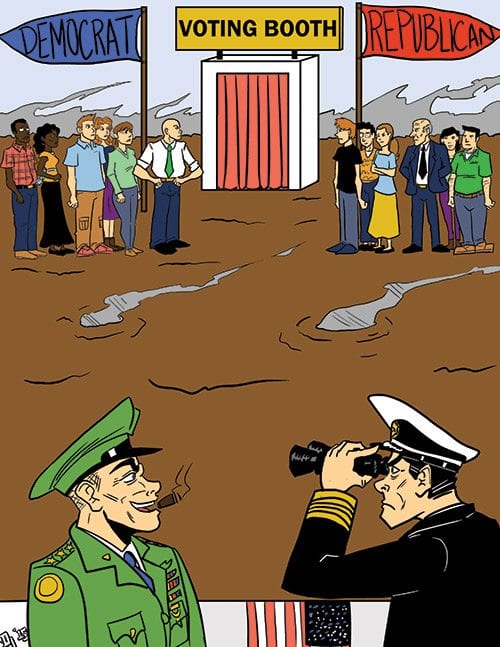
Fifty years ago or so, several statutes were enacted to resolve some of the legal aspects of the Civil Rights Movement. The Civil Rights Act of 1964 ended the legality of racial discrimination in employment, education and places of public accommodation. The Voting Rights Act of 1965 removed numerous impediments to black registration and voting. And the Fair Housing Act of 1968 made it more difficult to discriminate in the sale or rental of housing. While many blacks wanted more, especially greater fellowship with other Americans, the confrontational aspect of the civil rights movement was considered to be over.
That was certainly a period of optimism, but with such a long history of racial oppression in America, there was little reason to believe the battle was over. A century earlier, in 1865, the 13th Amendment had outlawed slavery. Shortly thereafter the 14th Amendment granted slaves U.S. citizenship and, in 1870, the 15th Amendment granted blacks the right to vote. Just as important as the right to vote, the 15th Amendment also granted Congress the authority to enforce this right.
However, there was no way that the plantation owners in the 19th century South were going to turn over political power to blacks. In two states, Mississippi and South Carolina, the majority of the population was black, and throughout the South 36 percent of the population was black. With the help of the Ku Klux Klan and the Night Riders, it was not long before the black political resurgence was crushed. The so-called Reconstruction period lasted for only about 15 years after the Civil War.
According to the U.S. Census Bureau, by 2040 the white population in the U.S. will no longer be the majority. Once again the oligarchs have no intention of ceding political power. Their strategy is to take control of state governments so that they can establish favorable decennial congressional redistricting patterns. So far this strategy has worked. Across the nation 31 governors are Republican and their party controls 28 legislatures. The plan is to gerrymander the districts so that Republican candidates will have a greater chance to win.
Unfortunately, while the black turnout has been great for presidential elections and it might be good when the governor’s office is at stake, there still is not the systematic, massive black turnout needed for every election. Until that happens, the development of black political power will be impeded.






